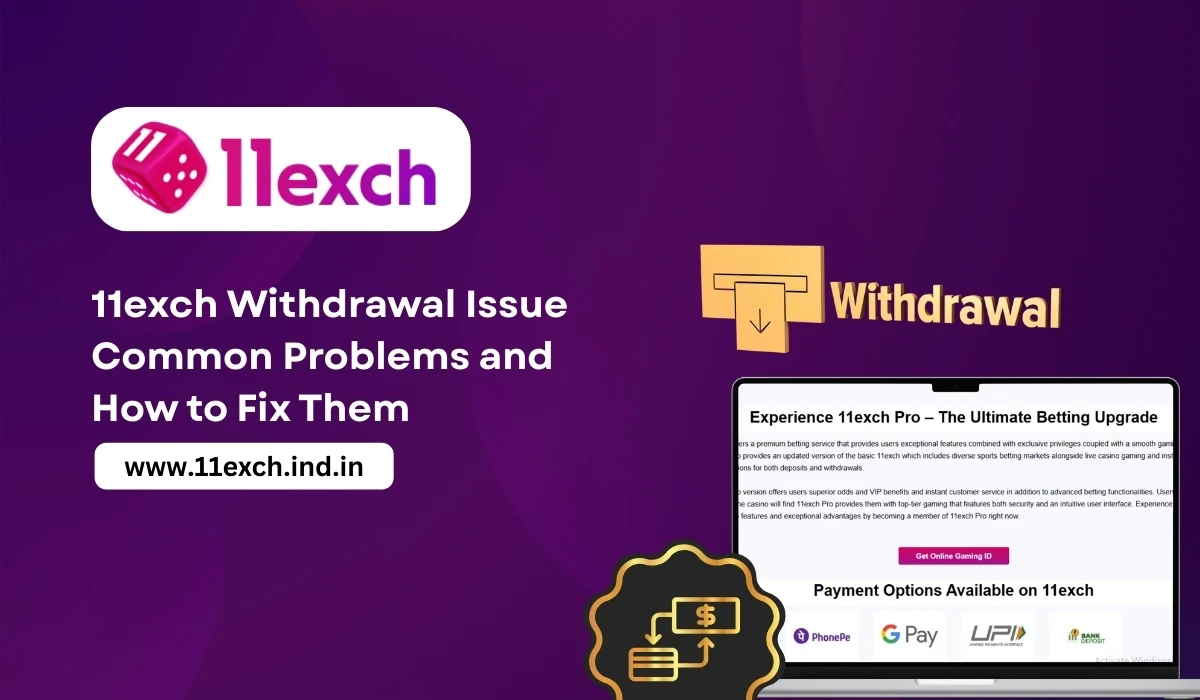For many new users, trading or wagering with real money is intimidating. Mistakes cost you real funds. That’s where a demo account shines. A demo account allows you to explore, learn, and practice—without financial risk.
In this article, we cover:
- What a demo account is
- Core features of the 11exch demo account
- How to use it step by step
- Best practices and tips
- Key benefits for new users
- Limitations & what to watch out for
- When to switch to real account
By the end, you’ll know whether 11exch demo mode is useful for you—and how to make the most of it.
What Is a Demo Account?
A demo account is a simulated version of a real trading or gaming account. It gives you virtual funds. You place trades or bets using this fake capital. You face real market/game conditions, but without risking real money.
In essence, it mirrors the real system: interface, tools, features—all available in demo mode. The only difference: you use virtual money.
Demo accounts are common in financial trading, sports platforms, prediction games, and more. They allow users to:
- Learn how the system works
- Understand tools and features
- Test strategies
- Gain confidence before committing real funds
Because mistakes don’t cost, demo accounts promote learning.
Core Features of the 11exch Demo Account
Here’s what you can expect from a well-implemented demo account on 11exch:
- Virtual Balance / Virtual Funds
A fixed amount of demo currency is credited (e.g. ₹100,000 or equivalent). You spend it as you like within limits. - Full Access to Platform Tools
Charts, indicators, order panels, bet slip, history — all features available, just like in live mode. - Realistic Market / Game Conditions
Pricing, odds, volatility or game outcomes should match how they behave in real mode. - Easy Switch Between Demo & Real
A toggle or button to move between demo mode and live mode seamlessly, without re-registration. - Reset / Refill Option
If you exhaust your virtual balance, you can reset it or request a refill (once or periodically). - No Real Profit / Loss
All gains or losses in demo mode remain virtual. You cannot withdraw demo winnings. - Time Duration / Unlimited Use
Some demo accounts expire after a time. But ideally, 11exch should provide unlimited access so learners aren’t rushed. - Tutorials & Help within Demo
In-demo guidance, tooltips, or tutorials help new users understand each function.
How to Use the 11exch Demo Account: Step by Step
Here’s a simple process you (or other users) can follow:
Step 1 – Register or Log In
Sign up for 11exch or log into your existing account. Ensure your account credentials are ready. Do 11exch Login Now.
Step 2 – Activate Demo Mode
In the dashboard or menu, click “Demo Account” or “Practice Account” option. The system will switch you into demo mode.
Step 3 – Receive Virtual Funds
You will be credited with a demo balance. This is your virtual capital for practice.
Step 4 – Explore the Interface
Familiarize yourself with navigation, markets, betting panels, charts, stats, and history tabs.
Step 5 – Place Practice Trades or Bets
Use the demo funds to execute orders, place bets, or play games as you would in live mode.
Step 6 – Monitor Performance
Check your history, profits or losses, and evaluate strategy.
Step 7 – Reset or Refill if Needed
If your demo funds run out, use the “refill” or “reset” option to continue practicing.
Step 8 – Switch to Live Mode (When Ready)
Once confident, switch to live mode and fund your real account to participate with real money.
Best Practices & Tips for Demo Use
To get the most from demo mode, follow these habits:
- Treat demo funds as real money — don’t play recklessly.
- Use realistic stake sizes, not overblown bets.
- Test multiple strategies, one at a time.
- Track what works and what fails — maintain a log.
- Try to simulate real-world conditions (no overtrading, no unrealistic frequency).
- Avoid relying solely on demo success to predict live success.
- Transition gradually: start with demo, then small real trades.
Key Benefits for New Users
Using a demo account offers many advantages, especially for beginners:
1. Risk-Free Learning
You make mistakes without losing real money. This is the safest way to learn.
2. Familiarity with Platform
You learn how 11exch’s interface, menus, tools, and workflows work before switching to real mode.
3. Strategy Testing
You can test tactics, timing, order types, and rules without pressure.
4. Confidence Building
As your demo “winnings” grow, your confidence improves. You know you are ready.
5. Understanding Risk & Volatility
You experience market swings or game randomness and adapt accordingly, without financial stress.
6. Lower Emotional Bias
While emotions are subdued in demo mode, you get some exposure to decisions under performance pressure.
7. Safe Environment to Experiment
You can try out advanced features (e.g. margin, scripts, multiple orders) risk-free.
Limitations & What to Watch Out For
Demo accounts are useful, but they have inherent limitations. Be aware of:
- Lack of Emotional Stakes
Because money isn’t real, you might take bigger risks you wouldn’t in live mode. - Differences in Execution & Slippage
Demo mode often gives perfect fills, no slippage, or ideal pricing. Real markets may not — orders may fail or get partial fills. - Artificial Spreads / Fees
Some demo platforms give better spreads or lower fees than live environments, giving an overly optimistic picture. - Unlimited Refill Temptation
If you can refill infinitely, you lose the discipline of capital constraints. That doesn’t mirror live mode, where your real money is limited. - No Real Withdrawals
Demo gains or “profits” have no real value. You can’t withdraw them. - Limited Time Expiry
Some demos expire after days or weeks. If 11exch limits demo time, users may be rushed. - Overconfidence Risk
Success in demo mode doesn’t guarantee success in real mode. Many new traders lose when switching.
When and How to Transition to Real Account
Knowing when to move from demo to real is critical. Here are signs and steps:
When to Transition
- You consistently make profitable demo decisions.
- You understand the interface and tools well.
- You feel comfortable with your risk and strategy.
- You’ve tested multiple scenarios (winning & losing ones).
- You have a bankroll ready and disciplined plan.
How to Transition
- Switch to live mode in 11 exch interface.
- Deposit a small amount first — treat early real trades conservatively.
- Start with low stakes to test your behavior with real money.
- Gradually increase stakes as you gain real-money confidence.
- Use stop loss, risk limits, and maintain discipline.
- Compare live outcomes against demo expectations and adjust strategies.
Example: A User Journey in Demo Mode
Here’s a sample path a new user might take:
- Day 1: Register and activate demo mode. Explore menus, markets, bets.
- Day 2: Place small test trades or bets in different markets.
- Day 3: Try a new strategy (e.g. aggressive vs conservative). Track outcomes.
- Day 4: Reset or refill demo funds after losses. Continue testing.
- Day 5: Evaluate your win percentage, risk, and confidence.
- Day 6: Deposit small real amount. Place cautious real bets.
- Day 7 onward: Gradually shift more capital as your strategies prove robust.
SEO & Readability Tips Used Here
To help this blog rank well and read easily, I’ve:
- Used short sentences and simple structure
- Inserted subheadings (H2/H3) for scanning
- Included the target keywords (e.g. “11exch demo account”) naturally
- Used bullet / numbered lists for clarity
- Focused on user intent: what new users want to know
- Kept paragraphs small (2–4 lines max)
- Ensured mobile readability
Final Thoughts
The 11Exchange demo account is a powerful tool for new users. It lets you explore the platform, test strategies, learn risk control, and build confidence—all without risking your money. While it has limits (no real withdrawals, idealized conditions), its value lies in safe, hands-on training.
When you feel confident and disciplined, transition to the live account with small stakes first. Use what you learned in demo mode, but stay cautious of real-money pressures.






